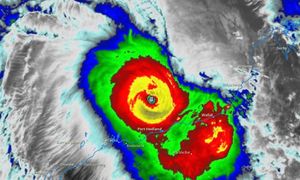South Africa's government has resolved to continue pursuing its legal case against Israel at the International Court of Justice (ICJ), standing firm against pressure from the United States, which has threatened to cut aid due to the allegations being made.
Represented by South African Foreign Minister Ronald Lamola, the nation filed its case against Israel for alleged genocide occurring during conflicts with Gaza. This significant legal move, initiated back in December 2023, marks South Africa as the first country to bring such allegations against Israel before the ICJ.
Despite the external pressure, particularly from U.S. President Donald Trump, who signed an executive order aimed at cutting aid to South Africa, Lamola asserted, "There is no possibility" of withdrawing the case against Israel. He emphasized the importance of upholding principles of international law, stating, "Holding onto our principles sometimes has consequences, but we remain steadfast..." Such statements reflect South Africa's commitment to addressing what they view as serious violations of human rights and international law.
The U.S. has taken this stance due to South Africa's land reform policies and its actions at the ICJ. Trump characterized South Africa's land reform efforts, aimed at rectifying apartheid-era injustices, as unjust discrimination against white farmers. Accusations have included claims of South Africa collaborating with Iran on nuclear discussions, which Lamola flatly denied, asserting, "We have good relations with Iran, but we do not have any nuclear program with Iran..." This denial reflects South Africa's intent to counter U.S. narratives tied to national and international security.
Under Trump's order, several programs, especially those relating to humanitarian and developmental aid, could be dramatically affected, drawing concern from various sectors within South Africa. South African President Cyril Ramaphosa had previously expressed the sentiment of the government by stating, "We will not be bullied," reinforcing their position amid the increasing tensions with the U.S.
The broader diplomatic rift highlights the complex relationship between South Africa and the U.S., marked by South Africa's independent stance on international human rights issues as opposed to U.S. foreign policy directions. Critics of the U.S. approach have labeled it as unwarranted interference, especially considering South Africa's pivotal role on the African continent as a champion for international law and justice.
South Africa's actions have not only attracted attention from its own citizens but also garnered interest from various nations, some of which have expressed support for the case against Israel. Countries such as Nicaragua, Colombia, Libya, Mexico, Palestine, Spain, Turkey, and Ireland have joined South Africa’s pursuit, showcasing the issue as one of global importance rather than confined to regional interest.
This legal battle, spurred by allegations of genocide against Israel, has been accompanied by claims from various human rights organizations pointing out grievances against Israel's military actions and treatment of Palestinians, adding layers of complexity to the case.
Meanwhile, the United States’ staunch support for Israel underlines its strategic interests within the region. This is evident as Trump has publicly denounced the ICJ, calling it out for biases against Israel and has threatened punitive measures against anyone challenging these dynamics.
With South Africa's firm commitment to its legal challenge against Israel, the situation promises to have several ramifications. Not only could it change the nature of international relations concerning the Israeli-Palestinian conflict, but it may also impact South Africa's international standing as it seeks to uphold the essence of international law.
It appears evident, especially with Lamola's remarks, there will be no retreat from this legal initiative, regardless of the diplomatic backlash or economic penalties anticipated from the United States. Maintaining sovereignty over legal matters tied to international human rights norms will likely remain South Africa's priority, regardless of external pressures.
With tensions rising, it remains to be seen how this conflict plays out within the larger narrative of global human rights advocacy and international law compliance, as South Africa stands strong against the perceived injustices they believe prevail under Israeli policies.



